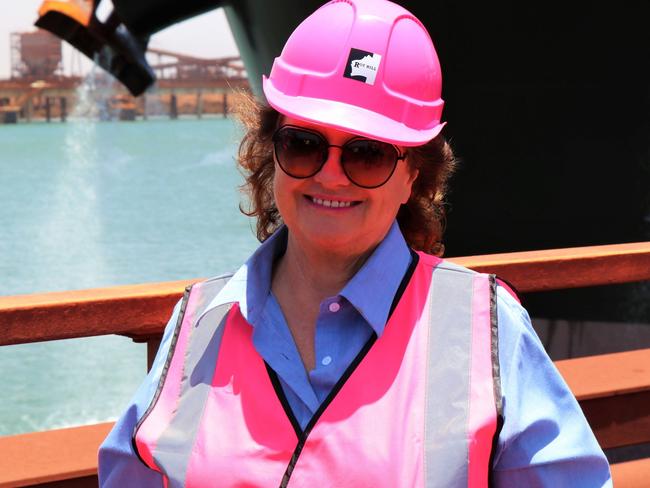Senex application to fast-track Qld gas field developments rejected
The new federal Environment Minister has rejected a partially Rinehart-owned company’s bid to fast-track Queensland gas fields.
QLD Politics
Don't miss out on the headlines from QLD Politics. Followed categories will be added to My News.
A company part-owned by mining magnate Gina Reinhart has been denied a request to fast-track federal environment approvals so it can tap into undeveloped Queensland gas fields it bought at the end of 2021.
Senex, a joint venture between South Korean steel giant Posco and Reinhart’s Hancock Energy, asked the federal environment minister in March 2022 to let it develop two Queensland gas fields without going through the usual environmental approvals process.
Senex argued an exemption would be in the national interest because it would allow Senex to develop the acreage quickly, and aid Australia’s domestic gas supply and energy security issues.
An exemption request is meant to be dealt with within 20 days, but the minister at the time — Sussan Ley — did not make a decision by the deadline of April 21.
New federal Environment Minister Tanya Plibersek, in a decision published late on Monday, said granting the exemption was not in the national interest.
“Having considered all the available information, I have decided not to grant Senex Energy’s requested exemption under the EPBC Act. I was not satisfied that such an exemption was in the national interest,” she said.
“Exempting this proposal from the requirements of the EPBC Act would not provide short-term relief to east-coast gas customers, given that gas supply from this project is at least 15 months away.
“I also understand that given the scale of the project and what is already known about the site, any assessment process under the EPBC Act is likely to be relatively straightforward.”

Senex announced last November it had entered into a binding agreement with Australia Pacific LNG to acquire two undeveloped gas fields in the Surat Basin, right next to its existing holdings.
The tenements, PL209 and PL445, were meant to have an estimated 184PJ of gas and an additional 600PJ though this needed “future appraisal”.
“Initial acquisition cost of $50 million, with a further $30 million payment upon receipt of satisfactory Commonwealth environmental approvals, funded from an acquisition bridge facility and existing cash and debt facilities,” the company stated at the time.
Senex, on August 11, announced a major $1bn expansion of its Queensland gas field, noting it would pump enough resources into the domestic market to cover 40 per cent of the state’s needs.
Chief executive Ian Davies on the day said the project had approvals for two of the three areas which required it and was working on securing the green light for the final acreage.
According to Senex the expansion of the Atlas and Roma North fields would create 200 construction jobs and 50 ongoing jobs.
A spokesperson for Senex said they respected and understood the decision.
“We note that this important acreage has received prior approval from the department, and we continue to believe that following the more than $1bn in investment we plan to make in developing our reserves we can make a very meaningful contribution to Australia’s increasing need for natural gas and supporting our domestic customers,” they said.





